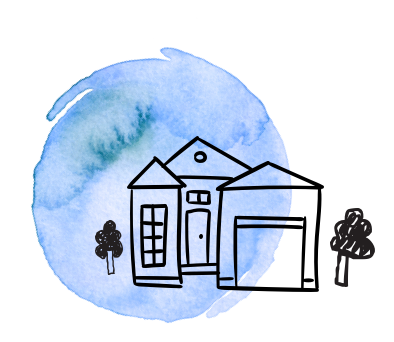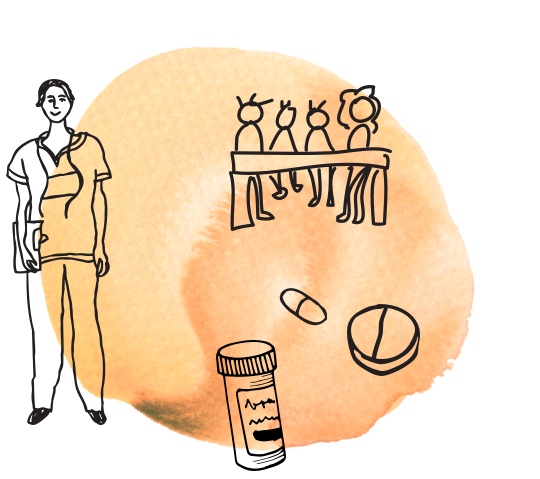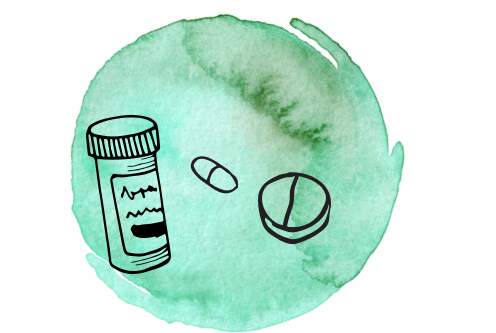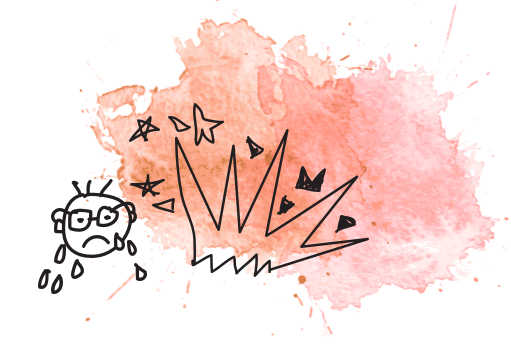Need immediate support?
Please call 8-1-1 for 24/7 general health information and advice. Indigenous people across Canada can also call the toll-free Hope for Wellness Helpline at 1-855-242-3310.
Need immediate support?
Please call 8-1-1 for 24/7 general health information and advice. Indigenous people across Canada can also call the toll-free Hope for Wellness Helpline at 1-855-242-3310.
When you suddenly stop drinking, your body can have a reaction called “withdrawal”, which is its response to the alcohol leaving your body. Some people call this “going cold turkey”. If you have a strong addiction to alcohol, withdrawal can cause strong symptoms, and some of them can be serious enough that you need emergency medical help.


Faster heart rate
Headaches
Fever
Shaking
Throwing up
Feeling sick
Sweating
You might also experience:
Anxiety
Restlessness
Trouble sleeping or not being able to sleep at all
If your goal is to quit drinking alcohol, or if you might get severe withdrawal symptoms when you cut back or stop, your health care provider may suggest “withdrawal management”, also known as “detox”. During this process, you will get support to help you go through withdrawal more comfortably and safely. This may include medications and other strategies that help with withdrawal.


The detox day alone simply sobered me up for a day or two: like a mini break from my hell. During these detoxes, I was prescribed lorazepam. This was to stop me from having a seizure, which happens when one stops heavy drinking abruptly.
Before starting the withdrawal management process, the health care provider you see will talk to you about your past experiences with withdrawal. They will ask you questions to understand if you are at low risk or high risk of having severe symptoms. This information will help them determine the best support for you.

These are the types of medications that are usually used when treating alcohol withdrawal.

If you don’t want to or aren’t ready to get help for problem drinking—or if you can’t get medical help for whatever reason—there are things you can do to drink more safely or stop dangerous withdrawal symptoms.
Harm reduction is all about making sure people who use substances stay as safe as possible by giving them resources to protect themselves and reduce the risk of worst-case problems. Harm reduction focuses on what people need and supports their well-being, independence and choices.

Managed alcohol programs (MAPs) are an option to help people who have a goal to drink more safely. In these programs, individuals get a specific amount of alcohol at times throughout the day that is right for them. This helps prevent withdrawal symptoms for those who struggle to get the amount of alcohol they need.
MAPs not only help control drinking, but they also provide support from others and the community. These programs help people stay stable and avoid using unsafe alcohol, like hand sanitizers or mouthwash that has alcohol in it.
MAPs are often run by non-profit organizations in the community, and some are found in hospitals. To join, people usually need to have a serious problem with alcohol and face other challenges like mental health problems, not having enough money or not having stable housing. Some MAPs are available in public housing places, especially for people who don’t have a home and have problems with alcohol. The requirements for each program can be different, and you usually don’t need a referral from a doctor to join.

It helped to know I could just reduce my drinking without quitting completely.
When you drink alcohol, it can make your brain slower, which makes it hard to react quickly. This means it’s unsafe to do things like driving or operating machinery. Drinking also increases the risk of getting injured from falling or being in other accidents. It’s important to be aware of these risks.

The safest option is to avoid driving after drinking any amount of alcohol. Even just 1 drink can make it harder to drive safely. Without a Breathalyzer, it’s difficult to know how each drink will affect your blood alcohol concentration (BAC).
Generally, it’s recommended to have no more than 2 drinks within a 2-hour period. But it’s important to understand that what is okay for one person may put another person over the legal limit. How quickly you feel the effects of one drink can depend on factors like your body type, weight, whether you’ve eaten or had water while drinking, and how much sleep you’ve had.

“Drinking coffee or water will sober me up quicker.”
“Maybe I can have a quick nap—that sobers people up.”
“If I exercise, that will help sober me up.”
“I’ll have a cold shower. That will definitely help sober me up.”
The only way to sober up is time. It takes about six hours for the body to get rid of all the alcohol.
While eating food and drinking water can help to slow down how quickly you get drunk, it cannot sober you up.